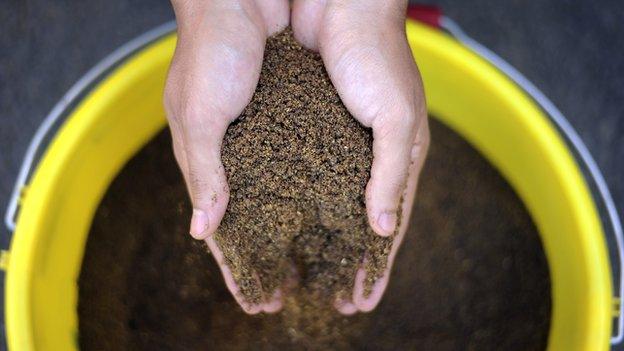EU split over use of major weedkiller glyphosate
- Published
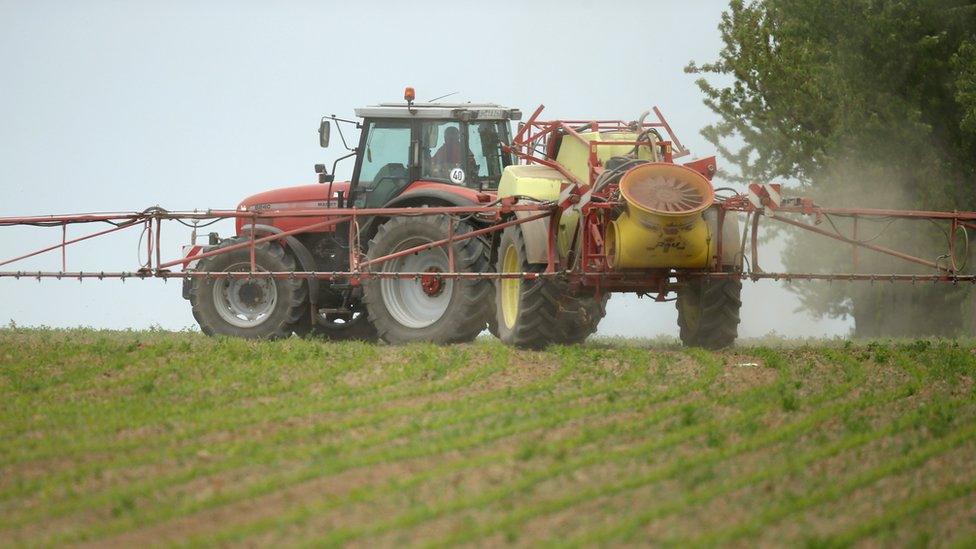
Crop-spraying in Germany: Many European farmers use glyphosate
An EU vote has failed to resolve a controversy over the use of glyphosate, the world's biggest-selling weedkiller.
One UN study called the chemical "probably carcinogenic", but other scientists said it was safe to use.
The current glyphosate licence runs out in the EU on 15 December. Only half of the 28 member states backed a European Commission proposal to renew the licence for five years.
An EU appeal committee will now try to rule on the issue.
The UK was among the 14 states backing the Commission position on glyphosate. Nine voted against - including France and Italy. Germany was among the five who abstained.
Glyphosate was introduced by US agrochemical giant Monsanto in 1974, but its patent expired in 2000, and now the chemical is sold by various manufacturers. The Monsanto weedkiller is called Roundup.
The European Food Safety Authority (EFSA) says glyphosate is unlikely to cause cancer in humans.
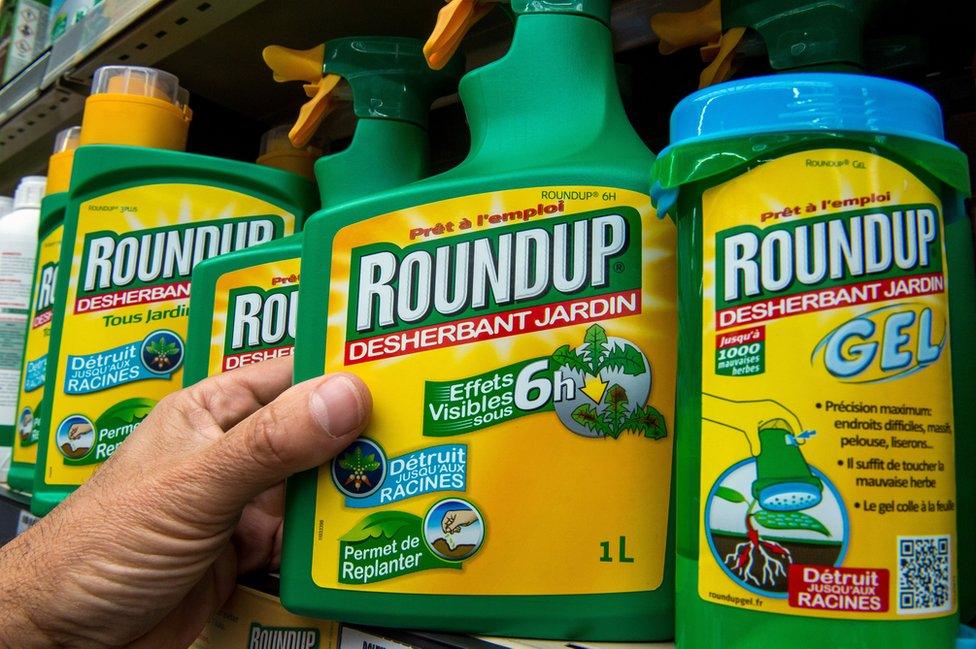
Monsanto's Roundup based on glyphosate has been sold worldwide
Critics say widespread use of glyphosate reduces biodiversity, by killing plants that are essential for many insects and other animals.
Some countries and regions have banned glyphosate use in public parks and gardens. Its effect on plants is non-selective, meaning it will kill most of them when applied.

Read more on farm chemicals:

How does glyphosate work?
It is usually mixed with other chemicals that help it get into plants, where it blocks a key enzyme pathway. The disruption prevents plants from making certain proteins needed for their growth.
The "shikimate pathway" involves seven enzymes, which enable the plant to form amino acids, the building blocks of proteins. The pathway is not found in animals.
Some crops, such as soybean, have been genetically modified to resist glyphosate.
Farmers spray it on fields before their crops emerge in spring, so the crops do not have to compete with weeds.
Some also use it as a pre-harvest treatment to dry out crops and make them easier to harvest. The UK Soil Association says such use is risky, external, as it can increase glyphosate residues in food.
How widespread is it?
It is described as the world's most popular weedkiller. In the US more than 750 products contain it.
Glyphosate use worldwide has risen almost 15-fold since 1996, when so-called "Roundup Ready" crops, genetically-engineered to resist glyphosate, were introduced.
A 2016 study by Environmental Sciences Europe, external notes growing concern about intensive glyphosate use, because some plants have developed resistance to it - meaning that farmers tend to use even more of the herbicide.
Sri Lanka banned use of glyphosate in 2015 - though the tea industry opposes the ban. In 2015 too Colombia stopped aerial spraying of glyphosate - even though it had been used widely to kill illegal coca plants.
What is the effect on humans?
Glyphosate's toxicity is reckoned to be low, in the concentrations used by farmers, although the UN International Agency for Research on Cancer called it "probably carcinogenic".
The European Commission says that, external besides EFSA, the European Chemicals Agency and other scientific bodies found no link to cancer in humans.
The Soil Association says glyphosate traces are regularly found in bread.
According to the US National Pesticide Information Center, the chemical mostly passes through the body quickly in urine and faeces.
- Published9 November 2017
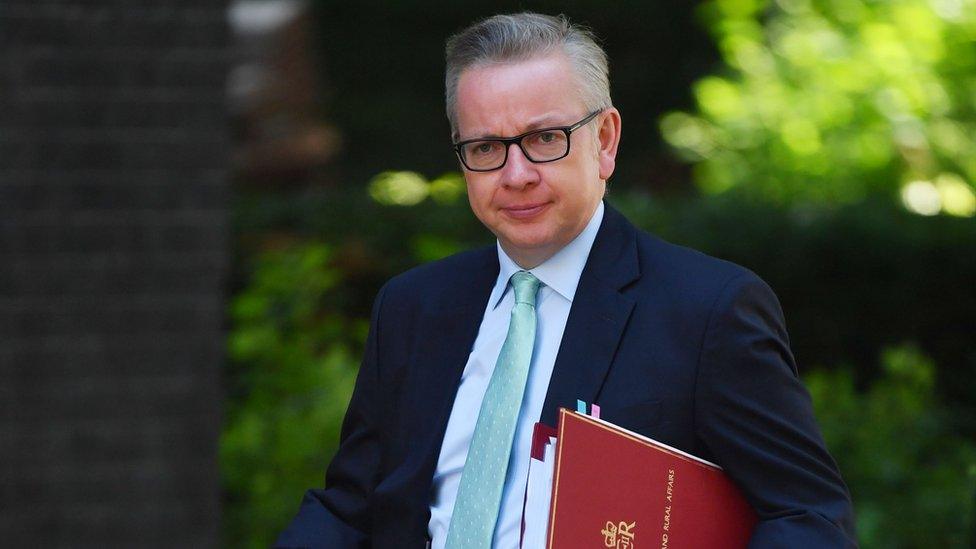
- Published29 June 2017
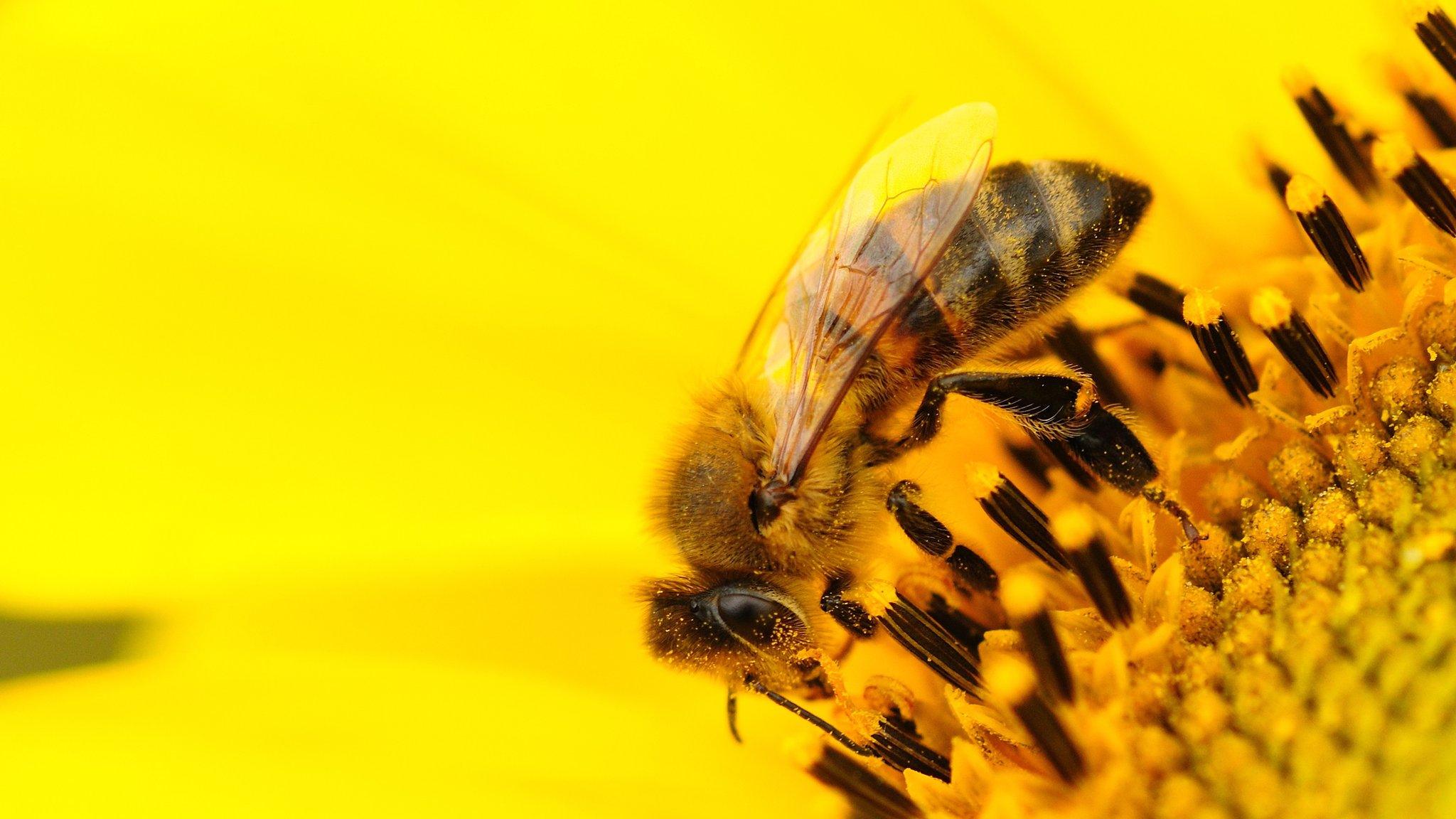
- Published22 August 2016
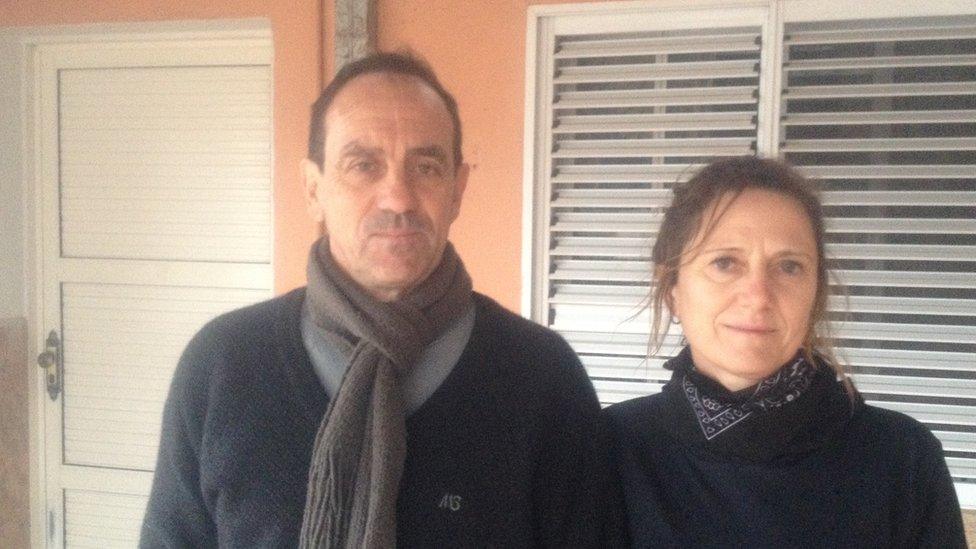
- Published24 April 2015
